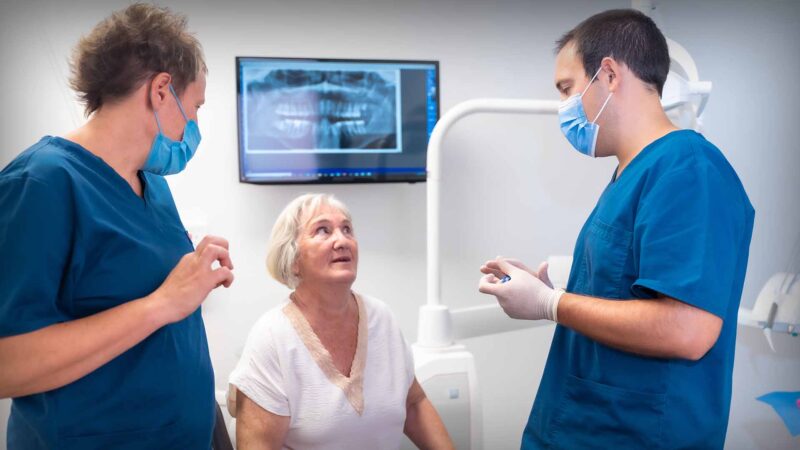People In Health Care
Dr Marina Berbic
Genetic Pathologist and Deputy Director of Genetics
Douglass Hanly Moir Pathology
Dr Marina Berbic is a genetic pathologist and the Deputy Director of Genetics at Douglass Hanly Moir Pathology – a laboratory based in Sydney and part of Sonic Healthcare. The genetics department at Douglass Hanly Moir offers a wider array of genetic tests across many domains, and the medical leadership model ensures the highest possible standard of care and commitment to patient safety.
Australian Health Journal spoke to Dr Berbic about her career and being a genetic pathologist. She started as a junior doctor in obstetrics and gynaecology after completing a medical degree, though never thought about specialising in pathology. The more she learned about genetic pathology, the more intrigued she became, realising that this specialty aligned with both her strengths and interests.
Dr Berbic has always been interested in science, technology, and innovation. She first studied for a Bachelor of Medical Science degree, followed by a Master’s in Reproductive Health and Human Genetics and then a PhD in Reproductive Medicine. Dr Berbic has long-standing academic interests, both from a research and teaching perspective. She continues to be involved in medical education at the University of New South Wales in her role as an Adjunct Senior Lecturer.
After completing her specialist training and attaining fellowship of the Royal College of Pathologists of Australasia, she commenced her role as a genetic pathologist at Douglass Hanly Moir and later became the Deputy Director of Genetics department. Her role involves providing clinical governance and medical leadership that governs all aspects of medical testing in genetics.
In this interview, Dr Berbic talks about the exciting area of genetic pathology impacting multiple areas of medicine including paediatrics, obstetrics and gynaecology, cardiology, neurology, oncology, and other fields.
The results of genetic testing have a potential impact on the patient’s diagnosis, the decisions that couples may take when they’re making reproductive decisions, and also have predictive implications. The testing results may influence therapy, selection, or patient management and may have far ranging impact on the individual as well as their family.
You Might also like
-
Child Dental Benefits Schedule needing greater awareness
Since its launch in 2014, the Child Dental Benefits Schedule has seen a gradual increase in participation year on year. The impact of COVID-19 and related shutdowns saw participation fall sharply in 2020. Though it increased 2021, the national target of 41% participation was not reached in 2021-2022, with the total (35.4%) more than three percent below 2018 participation rates.
In an opinion segment, Australian Health Journal spoke with Abano Healthcare Group Clinical Director, Dr Fred Calavassy, with over 30 years of clinical experience, about his observations of the Child Dental Benefits Scheme ways to increasing participation rates.
-
Dental and oral health care priorities for the elderly
In 2023, there are a number of changes occurring in dental services including the start of a new Senate inquiry and new registered nurses in residential aged care. Yet in the meantime there are gaps and delays in dental and oral health interventions for elderly Australians, unless training is more widely deployed.
Australian Health Journal spoke to Leonie Short, a dental therapist working for Seniors Dental Care Australia on what she considers are dental and oral health priorities for the elderly, based on her work in the aged, home and disability sectors.
-
Addressing Pharmacy challenges at home and abroad
Paul Sinclair’s progression through the ranks of the International Pharmaceutical Federation (FIP) demonstrates the impact and influence he’s had in representing the pharmacy profession on a global scale. In this Australian Health Journal interview, Paul talks about the 4 themes in the upcoming FIP Congress in Brisbane this month. He also talks about the challenges facing pharmacy with remuneration, professional service delivery and the workforce coming out of the COVID era.



